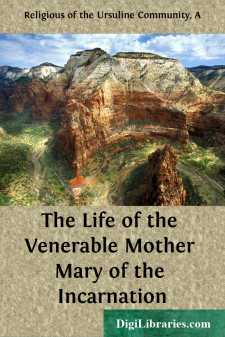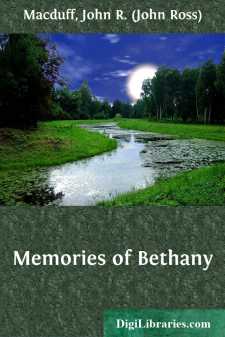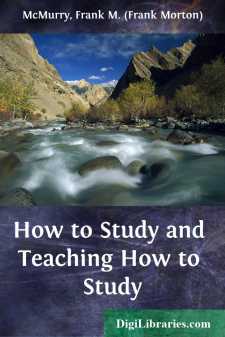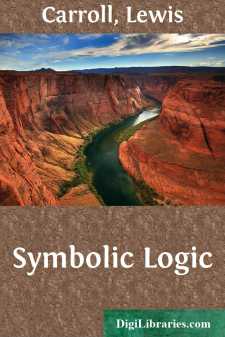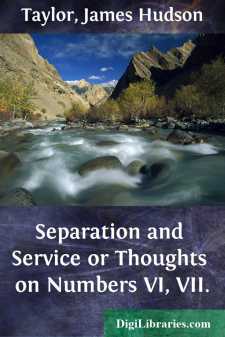Categories
- Antiques & Collectibles 13
- Architecture 36
- Art 48
- Bibles 22
- Biography & Autobiography 813
- Body, Mind & Spirit 142
- Business & Economics 28
- Children's Books 15
- Children's Fiction 12
- Computers 4
- Cooking 94
- Crafts & Hobbies 4
- Drama 346
- Education 46
- Family & Relationships 57
- Fiction 11828
- Games 19
- Gardening 17
- Health & Fitness 34
- History 1377
- House & Home 1
- Humor 147
- Juvenile Fiction 1873
- Juvenile Nonfiction 202
- Language Arts & Disciplines 88
- Law 16
- Literary Collections 686
- Literary Criticism 179
- Mathematics 13
- Medical 41
- Music 40
- Nature 179
- Non-Classifiable 1768
- Performing Arts 7
- Periodicals 1453
- Philosophy 64
- Photography 2
- Poetry 896
- Political Science 203
- Psychology 42
- Reference 154
- Religion 513
- Science 126
- Self-Help 84
- Social Science 81
- Sports & Recreation 34
- Study Aids 3
- Technology & Engineering 59
- Transportation 23
- Travel 463
- True Crime 29
The Life of the Venerable Mother Mary of the Incarnation
Description:
Excerpt
Early in the sixteenth century, reports of the progress of discovery in America began to make their way to France, and, as a natural result, to arouse emulation. For no one had the stirring tales a greater charm than for the reigning Sovereign, Francis I., whose spirit of rivalry, thirst of glory, and love of adventure, they were especially calculated to stimulate. It would have been as repugnant to the nature, as it was inconsistent with the policy of the ambitious monarch, to permit the Kings of Spain [Footnote: In 1492, Christopher Columbus discovered the islands of the Western Hemisphere, and took possession in the name of the Spanish Sovereigns, Ferdinand and Isabella. At his third voyage, in 1498, he added to the first discovery, that of the Continent of South America.] and Portugal [Footnote: in 1500, Alvarez de Cabral, a Portuguese navigator, took possession of Brazil for his royal master, Emmanuel, King of Portugal. Amerigo Vespucci had discovered its coast in 1498.] to monopolize the glory and the advantages anticipated from possession of the western world; such an idea was not to be for a moment entertained. If their banners waved over its Southern Continent, that was no reason, he argued, why France should not unfurl her fair white lilies in the Northern. [Footnote: The mainland of North America was discovered in 1497 by the celebrated Italian adventurers, John Cabot and his sons, under a commission from Henry VII of England, who, however, did not avail of the discovery.] "I should like," he exclaimed with characteristic impetuosity and originality, "I should like to see the clause in Adam's will which authorizes these, my royal cousins, to divide the New World between them!" As there seemed, however, little chance of his being permitted to adjust the rival claims by a reference to our first father's last testament, he resolved, as a more practical solution of difficulties, to take the law into his own hands, and by getting possession of a share of the spoils to secure at least nine points of it in his favour.
In justice to his Most Christian Majesty, it must be admitted that although self-interested considerations had no doubt a large part in his decision, other and worthier views influenced him. perhaps even more strongly. If his proud title of eldest son of the Church was to be more than an empty name, it devolved on him, he felt, to take prompt measures for introducing Christianity into some part of the newly discovered idolatrous West. Spain and Portugal had anticipated him in one direction, it was true, but the world of Canada still presented a vast field for his zeal in another. The existence of that barbarous, heathen land was now an ascertained fact, What nobler use could he make of his royal resources than to introduce into it the two-fold light of faith and civilization? None, assuredly. Over far-off Canada, therefore, he determined that, fortune favouring, the banner of the Lily should ere long float.
And, truly, it was well worth the seeking, that fair, too long neglected gem in Nature's coronet, the distant land over the Western sea. Cultivation has no doubt done much for the Canada of Francis I., still even in the undeveloped beauty of those remote days, its natural features were strikingly fine. Prominent then, as now, was the noble river flowing through its midst—its own beautiful St. Lawrence, "the river of Canada," as the French sometimes styled it by pre-eminence; a recognised monarch [Footnote: "The St. Lawrence has a course of nearly three thousand miles, and varies in breadth from one mile to ninety miles. It annually discharges to the ocean about 4,277,880 millions of tons of fresh water, of which 2,112,120 millions of tons may be reckoned melted snow— the quantity discharged before the thaw comes on being 4,512 millions of tons per day for 240 days, and the quantity after the thaw begins being 25,560 millions per day for 125 days, the depths and velocity when in and out of flood being duly considered."—Martin's British Colonies.] in the world of waters, embracing in its wide-spread dominion, rapids and cataracts, and tributary streams, with vast lakes like seas, and a little world of islands like fairy realms, [Footnote: Among others, the Thousand Islands, happily described as "picturesque combinations of wood, rock, and water, such as imagination is apt to attach to the happy islands in the Vision of Mirza."] the whole enclosed within romantic shores, worthy to form the framing of so magnificent a picture.
Then, as now, the valley of the St. Lawrence was rich in every variety of natural beauty, but with this difference, that at the arrival of the French the superb panorama was more or less enveloped in an apparently interminable forest, to which the predominance of the pine imparted in some places an air of solemnity, and even gloom. Since then, the axe has done its work in the inhabited portions, opening up a landscape of singular loveliness in some parts; of stern, wild grandeur in others; nevertheless, enough of the lordly old woods still remains, to justify their claim to a place among the characteristics of Canadian scenery....


